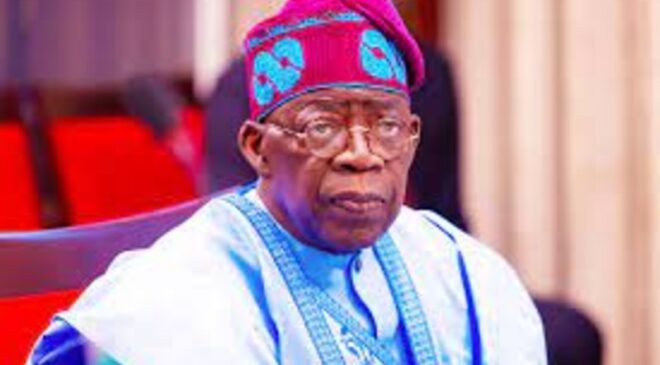In recent weeks, Nigeria has been bracing for a major protest slated for August 1-10, 2024. This impending demonstration has ignited a debate across the nation, with numerous arguments both for and against it. As tensions rise, it becomes imperative to delve into the root causes of this planned protest and explore strategies to avoid violence while fostering a national rebirth. The Nigerian President, Senator Bola Tinubu, his Aides and many Nigerians had spoken, given divergent opinions for and against the protest.
The planned protest, which has gained significant traction among the youth, stems from a multitude of grievances. Chief among these is the pervasive issue of unemployment. With a staggering youth unemployment rate, many young Nigerians feel disillusioned and marginalized. This sense of exclusion has been further exacerbated by the economic downturn, leaving many struggling to make ends meet.
Another critical factor fuelling the protest is the perceived lack of accountability and transparency in governance. Corruption remains a persistent problem, and the youth feel that their voices are not being heard.
The proponents of the protest argue that it is a necessary step to force the government to address these pressing issues. They believe that peaceful demonstrations can draw attention to their plight and compel authorities to take meaningful action. The protest, they assert, is a manifestation of their constitutional right to express dissent and demand change. This right is enshrined in Section 40 of the Nigerian Constitution, which guarantees citizens the freedom to assemble and associate peaceably.
Nigerian President, Senator Bola Tinubu
However, there are significant concerns about the potential for violence. Previous protests, such as the EndSARS movement in 2020, have shown how quickly peaceful demonstrations can escalate into chaos. The memory of the Lekki Toll Gate incident, where peaceful protesters were allegedly shot by security forces, remains fresh in the minds of many. The fear is that a repeat of such violence could lead to unnecessary loss of lives.
To avoid the protest, the government must engage in genuine dialogue with the organisers and the youth at large. Open communication channels can help address some of the grievances and possibly diffuse the situation. Listening to the concerns of the youth and providing tangible solutions to their problems can go a long way in restoring trust.
One of the ways to mitigate the causes of the protest is by tackling the issue of unemployment head-on. The government should prioritize job creation initiatives, particularly those aimed at the youth. Investing in sectors such as technology, agriculture, and renewable energy can create employment opportunities and reduce the sense of hopelessness among the youth.
Moreover, enhancing transparency and accountability in governance can help rebuild trust. The government should strengthen anti-corruption measures and ensure that those found guilty of embezzlement or misconduct are held accountable. By demonstrating a commitment to clean governance, the authorities can show that they are serious about addressing the concerns of the people.
Education and skill development also play a crucial role in addressing the root causes of the protest. The government should invest in quality education and vocational training programmes that equip young people with the skills needed to thrive in the modern economy. Providing scholarships and financial support for education can also help alleviate the burden on struggling families.
Furthermore, police reform must be pursued with renewed vigour. The grievances regarding police brutality cannot be ignored. Implementing comprehensive reforms to ensure accountability and professionalism within the police force is essential. Establishing independent oversight bodies to monitor police conduct can help prevent abuses of power.
On the flip side, the organisers of the protest need to consider the potential consequences of their actions. While their frustrations are valid, the possibility of violence and loss of life cannot be overlooked. Ensuring that the protest remains peaceful and orderly should be a top priority.
Civil society organizations and community leaders can play a vital role in mediating between the government and the protesters. By facilitating dialogue and promoting non-violent means of expression, these groups can help de-escalate tensions and prevent the situation from spiralling out of control.
Another avenue worth exploring is the use of social media for advocacy. While protests can draw attention to issues, social media campaigns can amplify the message without the associated risks of physical demonstrations. Coordinating online movements that raise awareness and call for change can be an effective alternative.
It is also essential for the international community to keep a close watch on the developments in Nigeria. International organizations and foreign governments can offer support in the form of diplomatic pressure, urging the Nigerian government to address the grievances of its citizens and avoid the use of excessive force.
Ultimately, avoiding the protest and its potentially violent outcomes requires a multi-faceted approach. The government must demonstrate a genuine commitment to addressing the root causes of the discontent, while the protesters must consider the potential risks and strive for peaceful means of expression. Only through mutual understanding and cooperation can the nation navigate this challenging period without further loss and suffering.
The August protest serves as a stark reminder of the urgent need for reform in Nigeria. It highlights the frustrations of a disenfranchised youth population and underscores the importance of responsive governance. By addressing the underlying issues and fostering a culture of transparency and accountability, Nigeria can pave the way for a more stable and prosperous future for all its citizens.
Emmanuel Ochonogor Enebeli, Anipr, CEO, Entrepreneur, Public Relations Consultant and Media Strategist, enebelli@hotmail.com, +234 (806) 331 9057
